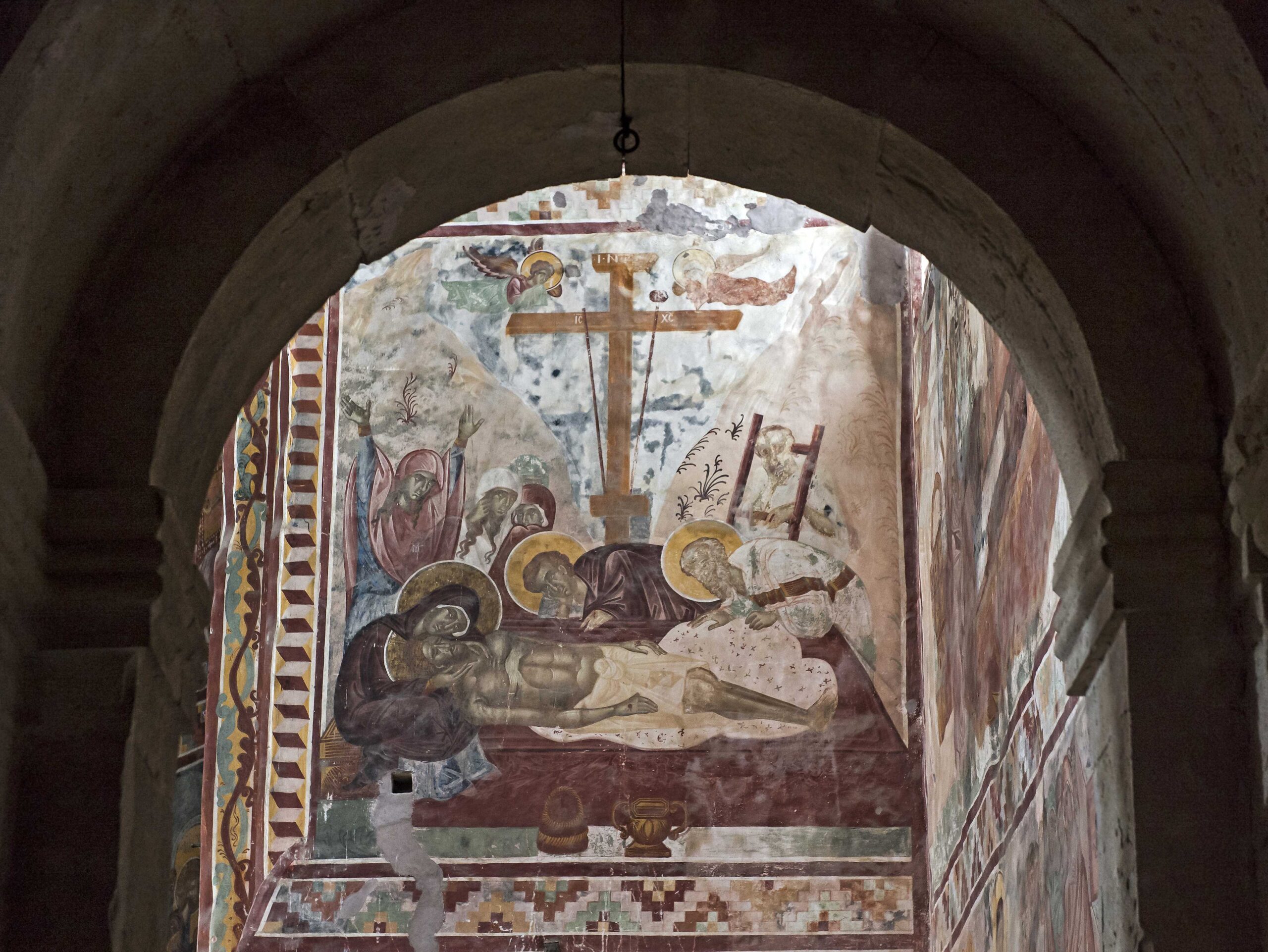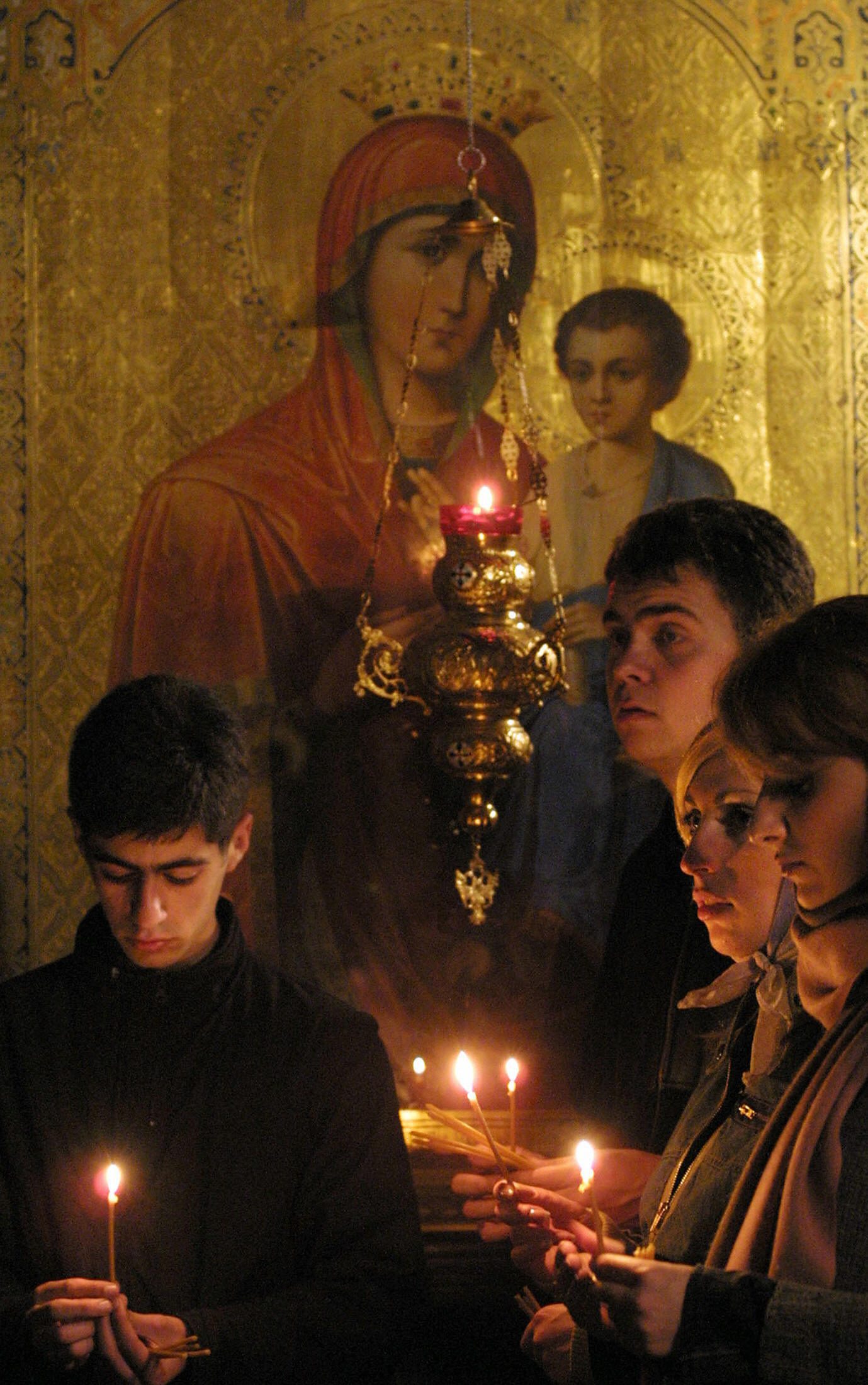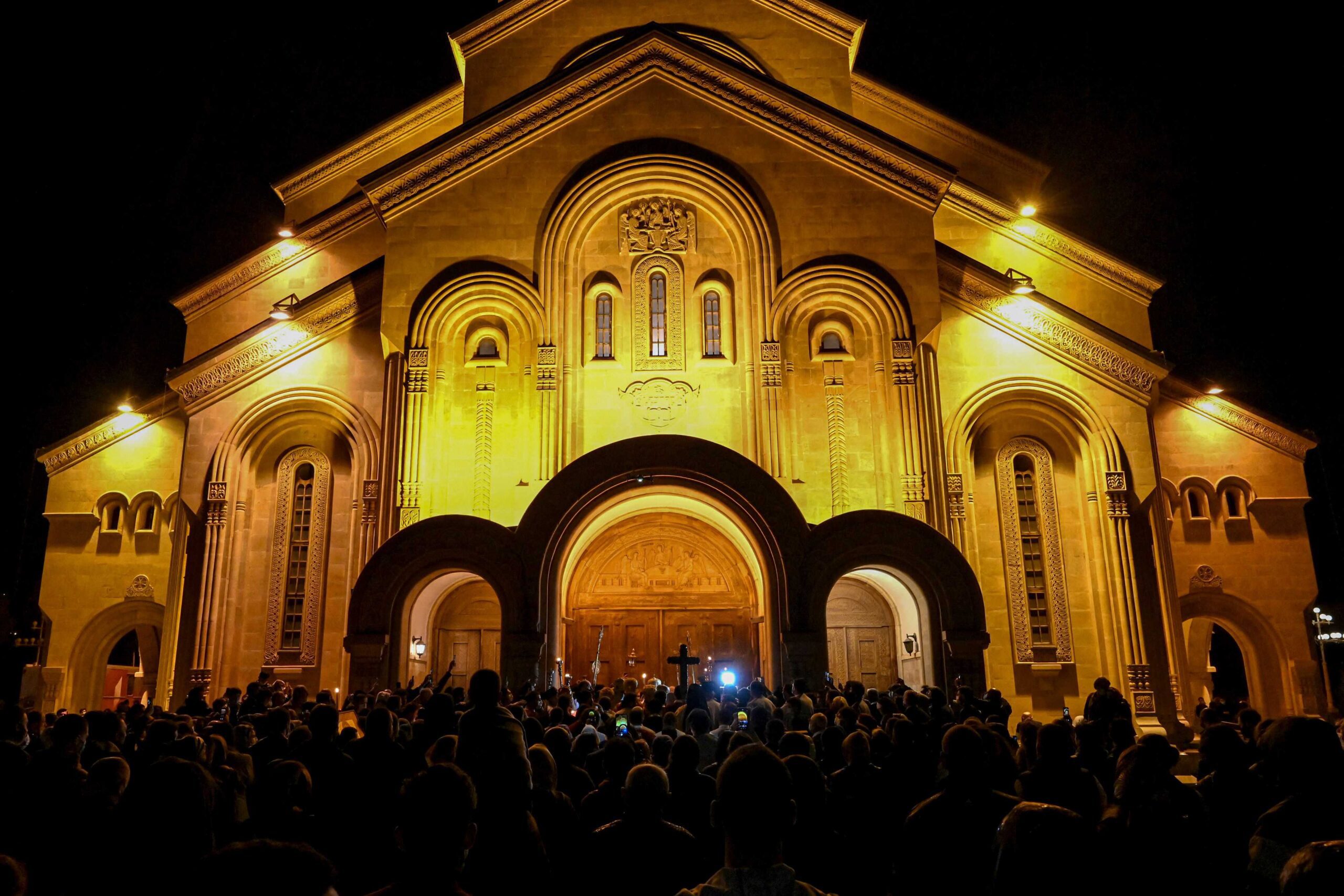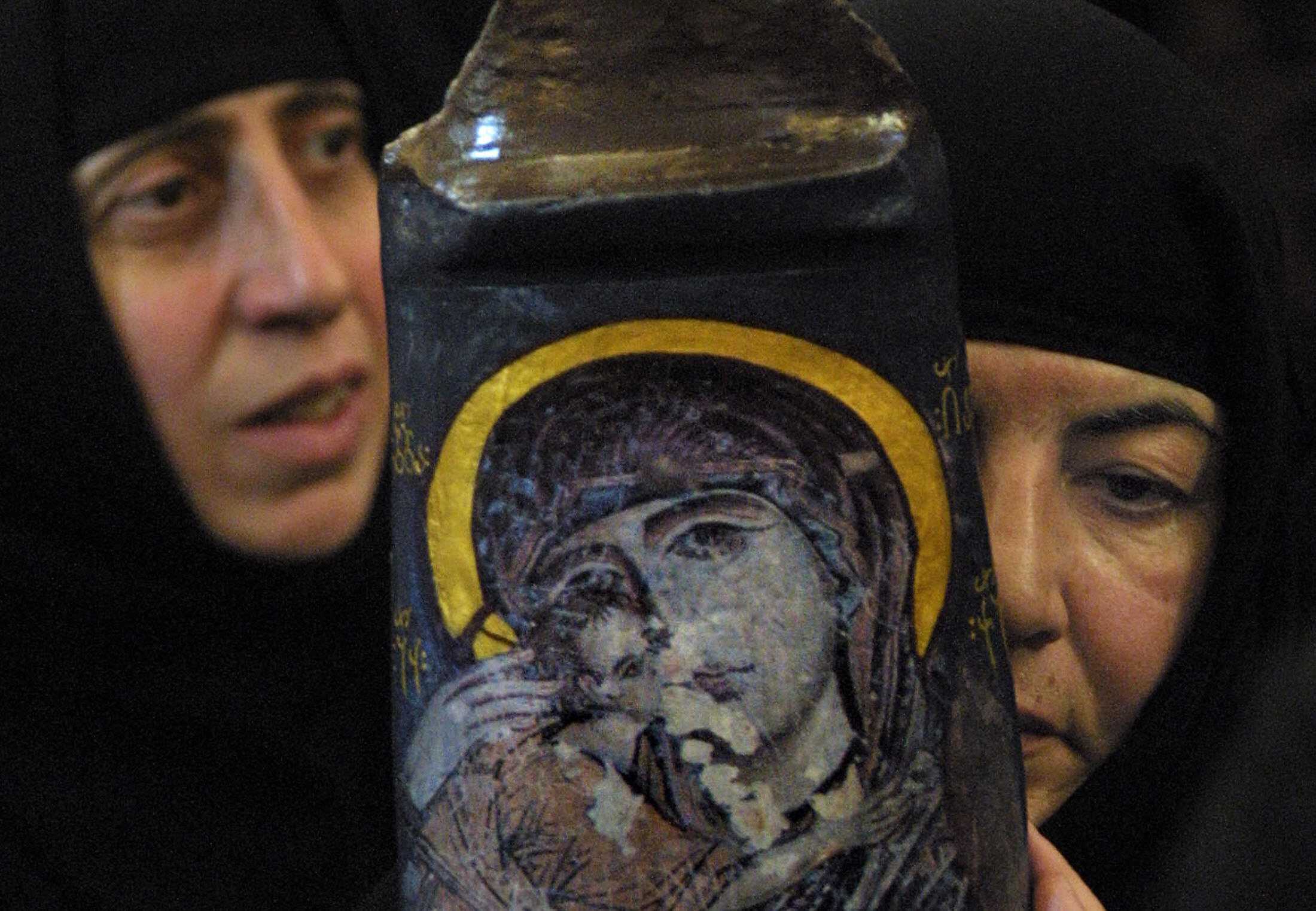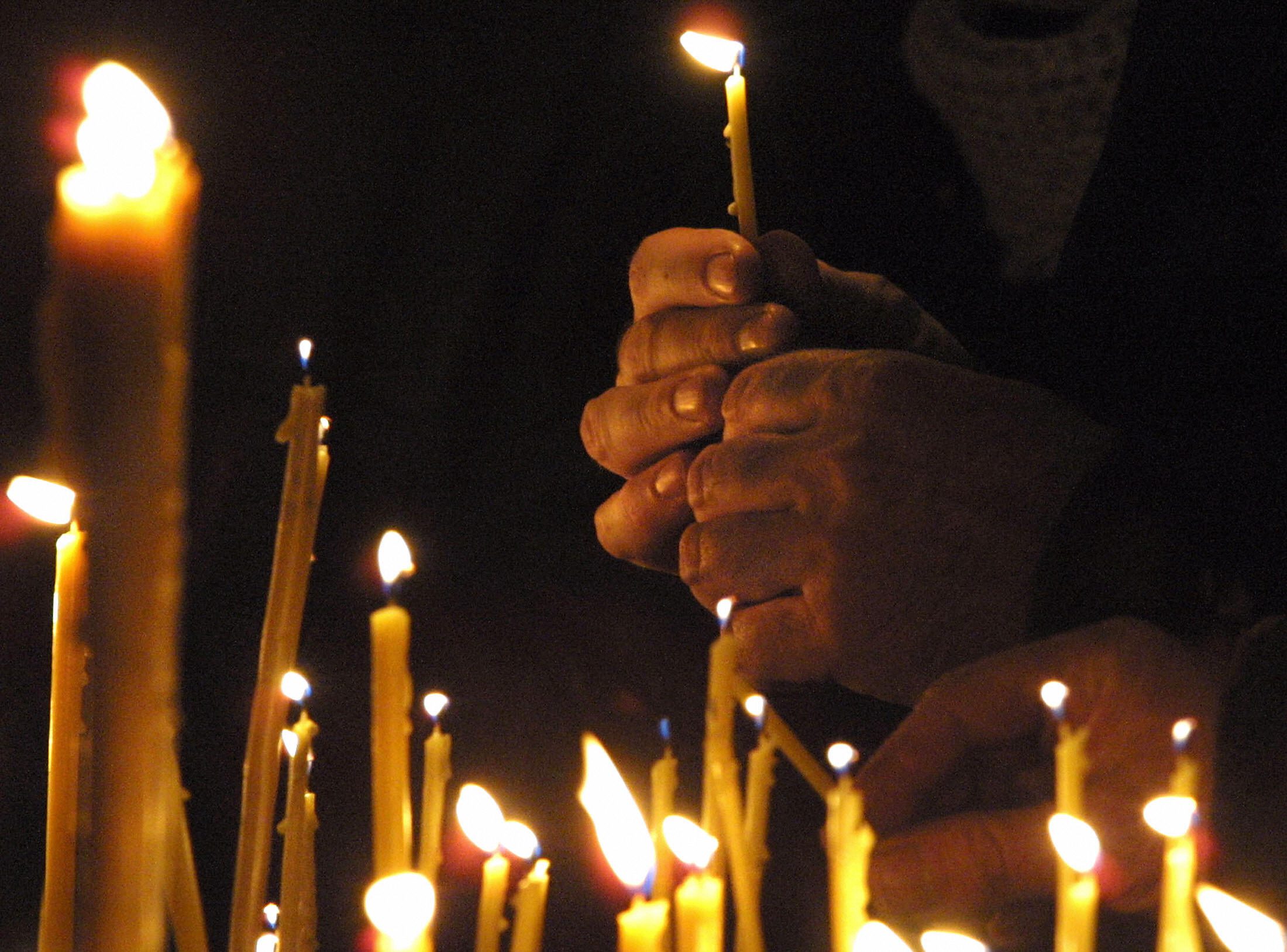Orthodox priests tell Zaborona that reforms are needed but are unlikely to come, due to reluctance from church leadership. If nothing is done, an archpriest says, internal fights might break out inside the Church and damage its reputation.
Thousands of pages said to confirm illegal wiretapping by the Georgian State Security Service, SSG, have recently been leaked, making headlines in the Caucasus state. The leaks show how the SSG has systematically wiretapped nearly every aspect of Georgian society – everything from priests and diplomats to the LGBT community – over nearly a decade.
The files raise many questions about the SSG and society overall, but more than anything, they raise questions about the Orthodox Church – the most trusted institution in Georgia, according to several surveys. Over the years, the Orthodox Church in Georgia has been hit by several scandals that have involved everything from pedophilia to mafia methods.
The new leaks add fuel to the fire under the influential Patriarchy and its leaders. They’ve exposed more stories of pedophilia, criminal activities, use of narcotics, and about a church with links to Russian authorities despite the conflict between the two countries.
“I was shocked about these recordings. I mean, I knew about some gossip about problems within the leadership. Still, I had no idea that it was anything like this,” said an archbishop to Zaborona under the condition of anonymity due to the fear of what might happen to him, “At the moment, ordinary priests are under huge pressure from the leadership, who we fear will try to punish us for covering up their own mistakes. We do not feel safe.”
“We know that the leadership will protect itself, and we are worried who will be blamed,” says the archpriest, “Only a few within the church dare to speak out because we are afraid. We are not allowed to speak about this unless given direct permission by the leadership.”
He adds that the Orthodox Church has been trying to bury the story with silence, questioning the leaks’ authenticity, and blaming journalists instead of the SSG.
“Disseminating these materials in television and internet space, especially with one’s interpretations, is neither ethical nor legal, irrespective of whether these files are authentic or not,” the Orthodox Church stated recently, according to the Georgian media outlet Civil.ge, adding that the files could be fabricated. The SSG has not confirmed their authenticity.
Sergi Kapanadze, a board member of the think tank GRASS, told Zaborona that he believes that the files are legit and says that the illegal mass wiretapping wasn’t a surprise for Georgians. Somehow, they knew that the SSG might be listening, and many had heard stories about problems within the church.
“This is not one of two cases of criminal behavior and links to Russia. It is a lot, showing how money comes in from Russia to the Orthodox Church and how they share intelligence with Russia,” says Kapanadze, who believes that the problems aren’t in the Georgian Orthodox Church as a whole, but centralized to its leadership.

Frescoes in the Georgian Orthodox Church of the Virgin depicting a crucifixion scene of Jesus, medieval Gelati Monastery complex, UNESCO World Heritage Site, Imereti region, Georgia. Photo by: Gunter Fischer/Education Images/Universal Images Group via Getty Images
The content of the leaks
An email with files containing the conversations was sent to several Georgian media outlets in September, when several Georgian media outlets received emails containing audio files attachments. These files contained conversations seemingly between SSG agents in secret chat groups, discussing information and transcripts obtained from wiretapping. It is unclear who is behind the leak, but the source seems to come from inside the SSG itself. Some, including people in the Orthodox Church, argue that the leaks are fake, but several people mentioned in the files have confirmed the authenticity of their information to Zaborona.
“We listen to everyone, we collect information about you, we collect compromising information, we use your weaknesses,” wrote the distributor of the leak in a statement, “It is our merit that today the church is not even the house of God, but one of the greatest nests of filth. We do not care that the terrible darkness of Russia spreads everywhere in the Patriarchate – we neither fight nor oppose it.”
Many of the pages focus on the personal life of the priests. Among other things, the leaks claim that high-ranking priests within the Orthodox Church are supposedly having sexual relationships with different women and men, and some files hint towards pedophilia. In the leaked discussions, SSG officers are said to have been chatting about how a priest has “a desire to establish an intimate relationship” with a minor and how another priest was “observed in an attempt to commit adultery with a minor girl,” according to the Georgian news site news.on.
The leaks also show examples of homosexuality within the church, a controversial topic within a church that has taken a strong stance against same-sex relationships. Previously, the Georgian Patriarch and spiritual leader, Ilia II, have described homosexuality as an “anomaly and disease” and other priests have denounced the orientation themselves in similar manners.
Zaborona has reached out to the leadership of the Georgian Orthodox Church and the SSG for questions. Neither agreed to comment before publication.

Believers light candles. Tbilisi. Photo: VANO SHLAMOV/AFP via Getty Images
The Russian connections
The SSG files also imply a strong connection between the leadership of the Georgian Orthodox Church and Russia. The Georgian Orthodox Church has long been suspected of having a close relationship with Russia, and the SSG leaks add to this suspicion. They imply that several figures in the leadership of the Orthodox Church have had, or have, a relationship with the Russian secret service, Russian churches, or political circles in Russia. These ties include receiving money from Russian sources – a matter of no small scandal in Georgia, which has been in conflict with Russia since the Russo-Georgian War in 2008.
The files reportedly claim that several members among the Georgian Orthodox Church clergy believe that patriarch Ilia II has been pressured by the Russian Orthodox Church and Russian political elites for at least one appointment for a position within the church in 2017.
Other conversations in the files reportedly claim that a person in the church’s leadership has provided Russia with audio and video recordings of foreign guests in the Georgian Orthodox Church. Other parts point out that archpriests have helped funnel money into Georgia from Russia, and another is said to have a close connection with Russia – and has attempted to sow divisions between the clergymen in the Orthodox Church.
While many priests are described as having a possible relationship with the Russian secret service, the files provide limited evidence despite the suspicion of the SSG officers. One archpriest, for example, is said to “not openly support Russian policy but may have secret relations with Russian special services,” but it is unclear why he is under suspicion. In other cases, connections to Russia are more concrete – such as in a case where the SSG officers allegedly discuss a link between an archpriest, his company, and Russia.
Irakli Kiknavelidze is a former politician in Georgia who has followed the Orthodox Church closely for many years and hosts a Georgian tv program. He told Zaborona that what is new is the extent of the connection with the Russian authorities.
“Nothing is surprising in this leak in terms of what we knew of their corruption. We knew that they don’t live in a very, very religious manner. We knew that there were some gays and so on. We knew that they had ties with Russia. We knew that there are some official channels between the Orthodox Church and Russia,” said Kiknavelidze.
“Still, we didn’t know about his backchannels and the frequent meetings with the top in Russia. This is new, and it is problematic,” Kiknavelidze added.

Sameba temple church in Tbilisi. Photo: VANO SHLAMOV/AFP via Getty Images
The silent protests within the church
The leaks are said by some to have strengthened the opposition parties in the recent local Georgian elections, which were held at the beginning of October. However, they haven’t resulted in mass demonstrations by supporters or churchgoers, or in a public uproar from priests.
The archpriest, speaking to Zaborona under the condition of anonymity, says that the church is controlled from the top-down. He adds that anyone speaking out of line will receive a warning. Failing to comply will result in shaming, degradation, or exclusion.
“We need reforms of the church, but I do not think that it is possible,” he told Zaborona, “It is a big stigma to lose your priesthood, and while there are priests in the church thinking like me, arguing for more inclusion of all of the Georgian society and stopping the connections with Russia, only a few are talking because many are afraid of the consequences.”
Zaborona met archpriest Zaza Tevzadze near St. Nicholas Church in the Georgian capital Tbilisi. He is the only priest in the Orthodox Church ready to raise criticism of the church with his real name. He said that the leaks could damage the church despite the lack of public uproar, and added that the church needs to do more to investigate the Russian links, as well as the criminal and sexual behavior of priests, who are often supposed to live in celibacy.
“In my opinion, the church hasn’t taken this seriously, believing that it will go away,” Tevzadze said, “But journalists still spread them, and it is damaging for us. We should instead take responsibility for this and investigate whether these claims are true.”
Tevzadze added that he doesn’t think that the leaks are enough to throw judgment on anyone, but that the church should decide to investigate it, which hasn’t happened. He also points out that there isn’t a problem with every priest in the Orthodox Church, while admitting that there have been many rumors of Russian links for years.
“It would be understandable if people were angry with both the government and the church. That they would go on the streets to protest these things because this is shocking,” he said before talking about the connections with Russia, “Everyone can just go out and deny this in public, but I do not think that this is enough; we need to find out whether this is true.”
Tevzadze points out that these leaks aren’t the first scandal to hit the Church.
“This is yet another, and with time, if we do nothing, these scandals will grow and worsen people’s view of the church. Moreover, it will weaken the unity and create conflict within the church – create clans, even more than we have today,” added Tevzadze.
During a survey in 2008, 75 percent said that they fully trust the Orthodox Church. That number, however, has dropped to 38 percent in a study from 2017. The Georgian Orthodox Church is the dominant religious institution in Georgia and one of the oldest in the world.

Georgian women hold an Orthodox icon during a mass for peace in Georgia, at Sameba church in Tbilisi. Фото: VANO SHLAMOV/AFP via Getty Images
The many scandals
Tevzadze believes that the Georgian Orthodox Church’s scandals have affected people’s opinions, and he points to several scandals that may have caused a worsening of the Church’s reputation over the years. One crisis that may have contributed was in 2017, when archpriest Giorgia Mamaladze was arrested at Tbilisi International Airport on his way to Berlin with cyanide in his luggage. Prosecutors later found weapons at his home, and he was sentenced to 9 years in prison. He was suspected of planning to kill Ilia II who was receiving medical treatment in Germany at that time, writes Radio Free Europe.
Another crisis hit the church a couple of years later in 2019, when archbishop Petre Tsaava, who has been a strong critic of the Orthodox church, stormed out of a meeting with high-ranking church members. At the time, the archbishop accused Illia II of sexual activity with underage boys and made claims of corruption within the institution.
“The nation has a Chair of the Synod beset by the sins of pederasty (pederasty refers to a sexual relationship between an adult man and a pubescent or adolescent boy – ed.) and sodomy,” Tsaava said back then, according to OC Media. He was later stripped of his title.
To Zaborona, Tsaava today maintains his claims against Ilia II and said that he is working on bringing out witnesses, but did not provide Zaborona with concrete evidence. He adds that the recent leaks have proven his point, and believes that the church will need to reform.
“The leaked files from the Georgian special services reassured me once again of my righteous struggle and further exposed the serious moral transgressions in the Church, such as pedophilia of the clergy and the criminal facts on which the government does not react, but only uses these violations as compromising material. In addition, there are drug-using and drug-dealing facts in the church that require urgent action,” he wrote to Zaborona, adding that the church seems to be run in a style similar to the mafia. “Unfortunately, there is conformism on the part of the clergy. For fear of losing their status, most of the clergy prefer silence and inaction for which there is no justification. The problem is that the existing violations are of a systematic nature.”
The list of scandals, however, goes further back than 2017. In the early 2000s for example, archpriest Basil Kobakhidze criticized the Orthodox Church for not condemning attacks against Christian minorities and other groups in Georgia. He was later suspended, and he tells Zaborona that the recently leaked files show the true nature of the Orthodox Church.
“There is nothing religious about the Orthodox Church, and the new recordings show that,” says Kobakhidze to Zaborona, “The recordings show that the church is run like a mafia, controlled from the top down by fear with links to political institutions. The leadership is simply manipulating people for influence and money with different schemes. That is all it is.”
Kobakhidze added that the links to Russia are worrying for Georgian society because of the impact of the Orthodox Church on Georgian society, its economy, and political parties.
“The Church is like a monarchy with Ilia II at the very top, who is spreading messages around, and people then spread it like a weapon of ideological propaganda. It is like a government within a government,” he added.
“Unfortunately, I do not see any hope of changes as long as the political parties in Georgia are afraid of intervening. The Church is unable to do it itself.”

A Georgian woman holds a candle during the Christmas service in a church in Tbilisi. Photo: VANO SHLAMOV/AFP via Getty Images


